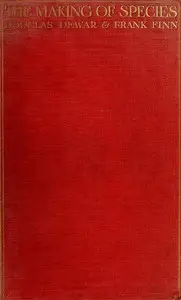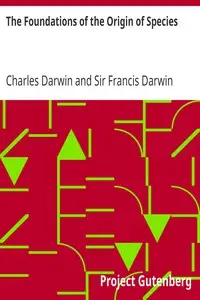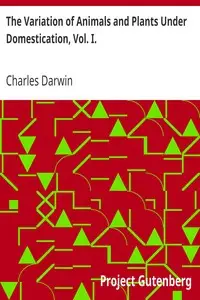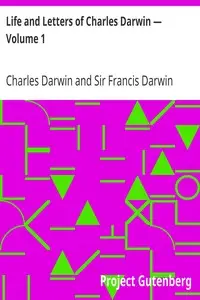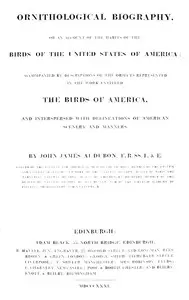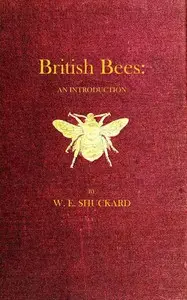"On the Origin of Species by Means of Natural Selection" by Charles Darwin is a transformative scientific work from the 1800s, exploring how life diversifies through evolution. The book carefully examines natural selection: the idea that species change slowly over long spans of time, shaped by their surroundings and the fight to survive. Beginning with reflections from his voyage on the HMS Beagle, it lays out observations of nature and variations found in both wild and domesticated animals. The writing prepares to make a case for the book’s central argument – that species come from shared ancestors, and were not created separately– pushing against long-held views and opening doors to new ways of understanding the living world.
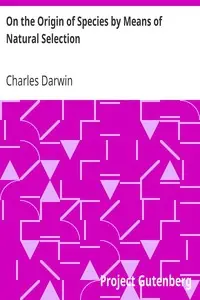
On the Origin of Species by Means of Natural Selection or the Preservation of Favoured Races in the Struggle for Life. (2nd edition)
By Charles Darwin
Embark on a revolutionary exploration of life's transformations, where survival hinges on adaptation and species evolve in a constant battle for existence.
Summary
About the AuthorCharles Robert Darwin was an English naturalist, geologist, and biologist, widely known for his contributions to evolutionary biology. His proposition that all species of life have descended from a common ancestor is now generally accepted and considered a fundamental scientific concept. In a joint publication with Alfred Russel Wallace, he introduced his scientific theory that this branching pattern of evolution resulted from a process he called natural selection, in which the struggle for existence has a similar effect to the artificial selection involved in selective breeding. Darwin has been described as one of the most influential figures in human history and was honoured by burial in Westminster Abbey.
Charles Robert Darwin was an English naturalist, geologist, and biologist, widely known for his contributions to evolutionary biology. His proposition that all species of life have descended from a common ancestor is now generally accepted and considered a fundamental scientific concept. In a joint publication with Alfred Russel Wallace, he introduced his scientific theory that this branching pattern of evolution resulted from a process he called natural selection, in which the struggle for existence has a similar effect to the artificial selection involved in selective breeding. Darwin has been described as one of the most influential figures in human history and was honoured by burial in Westminster Abbey.




